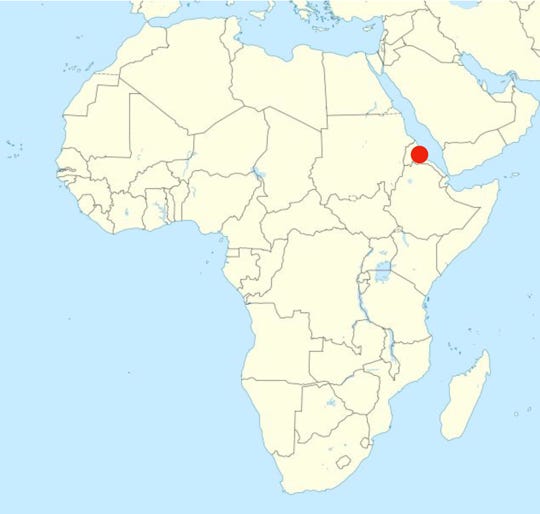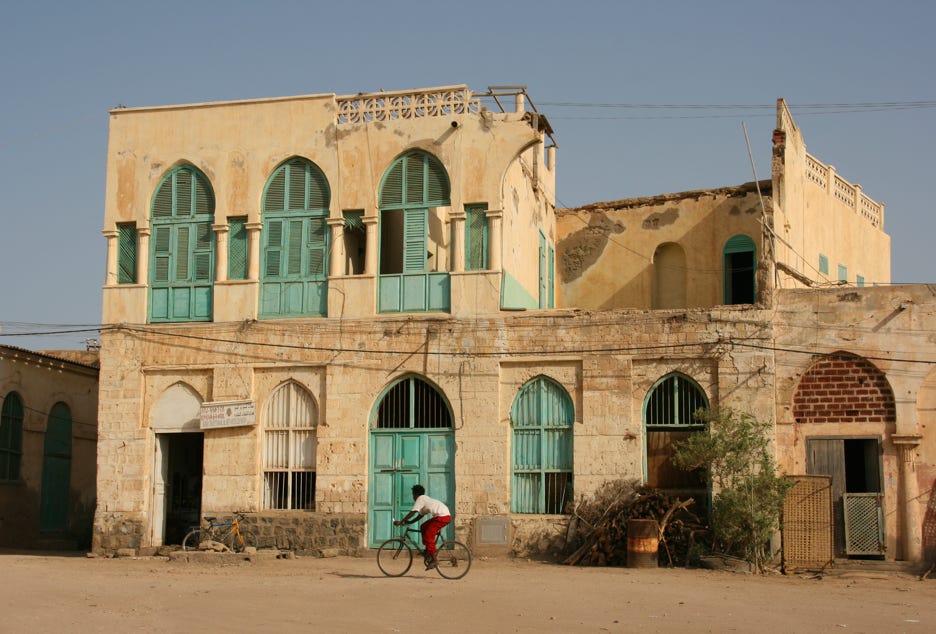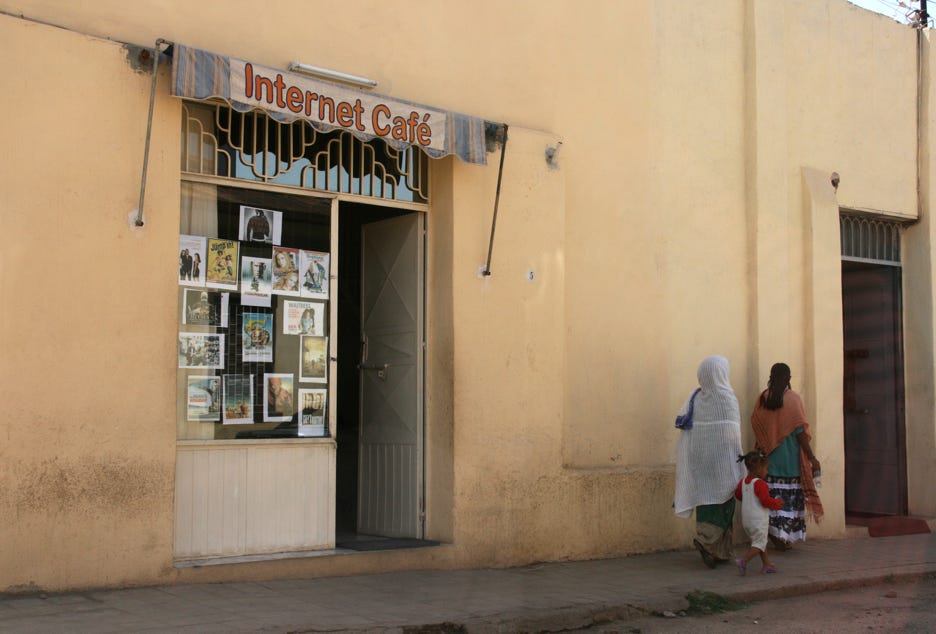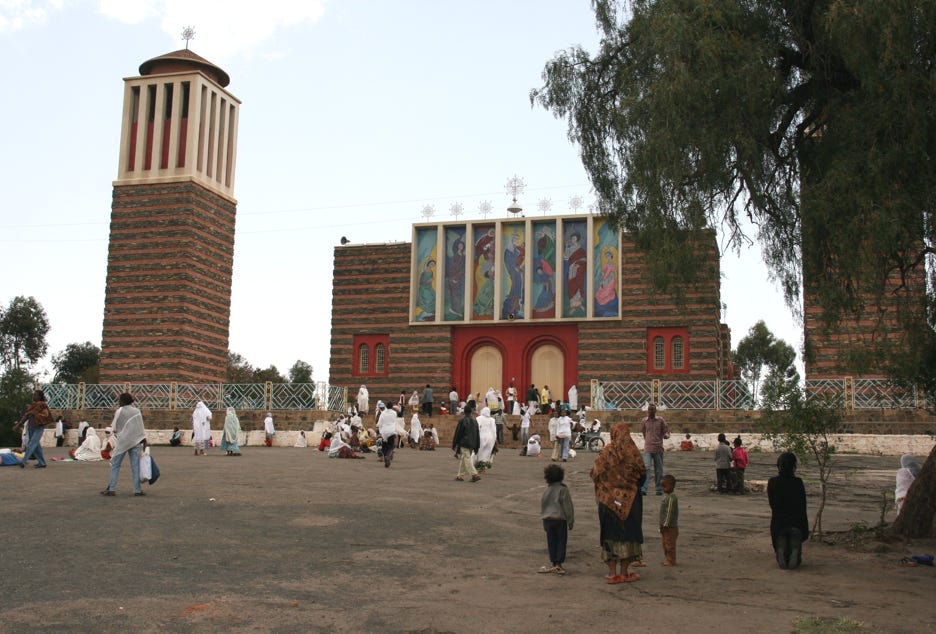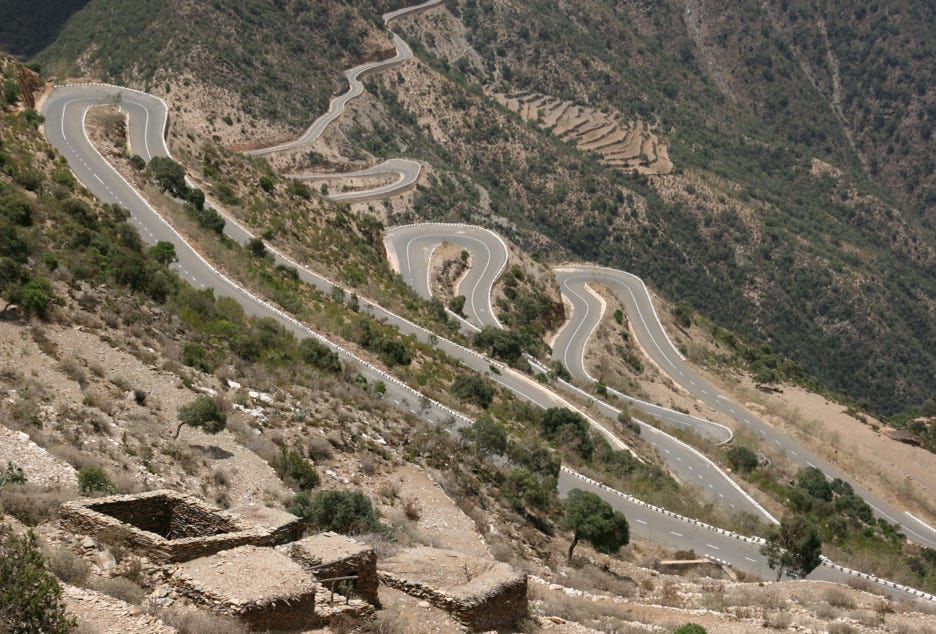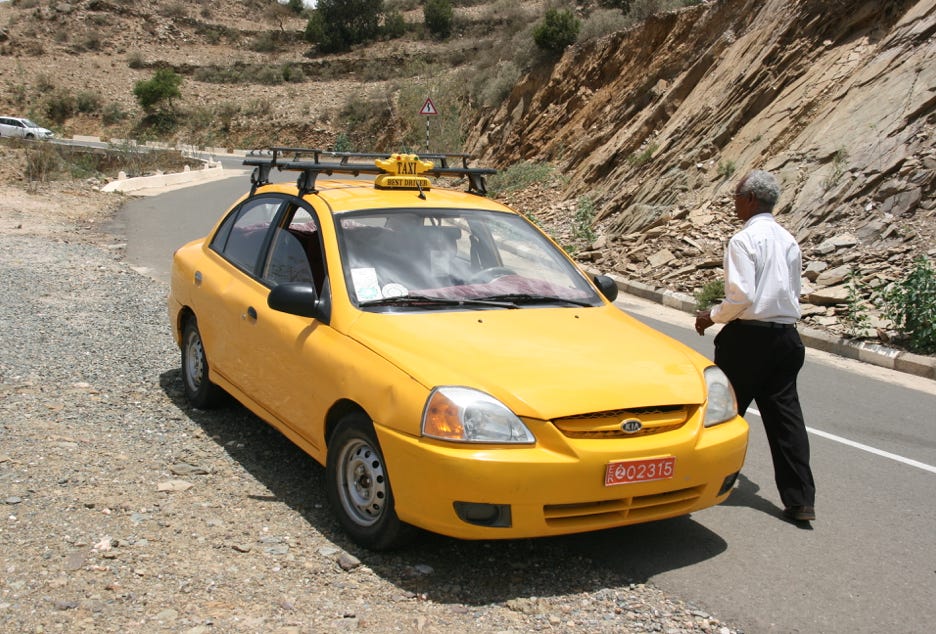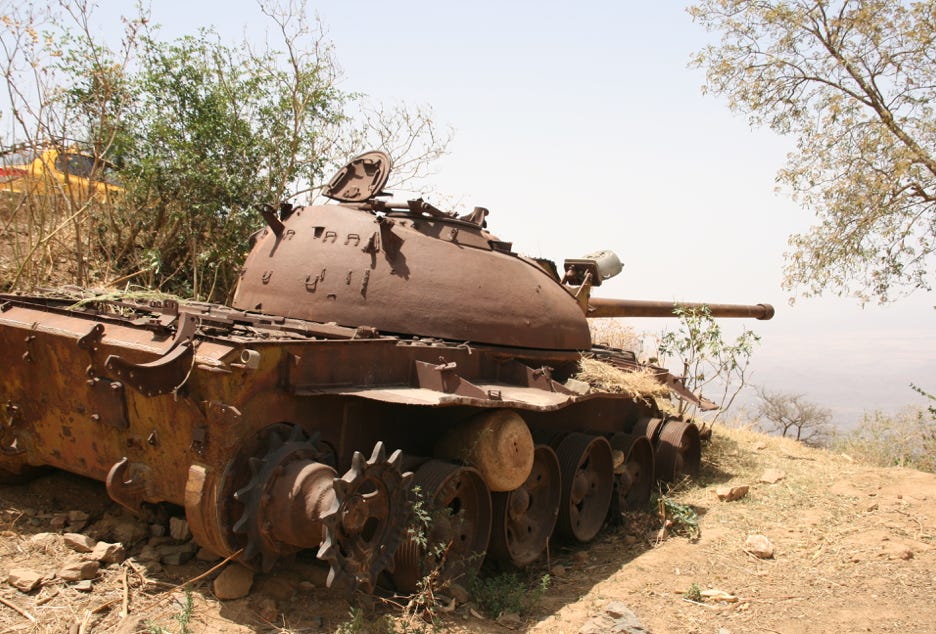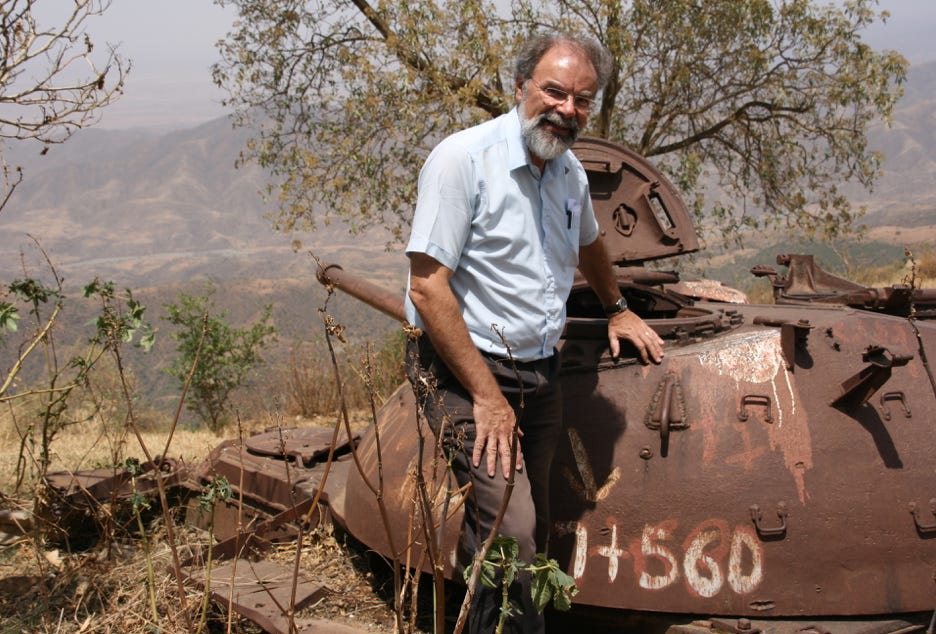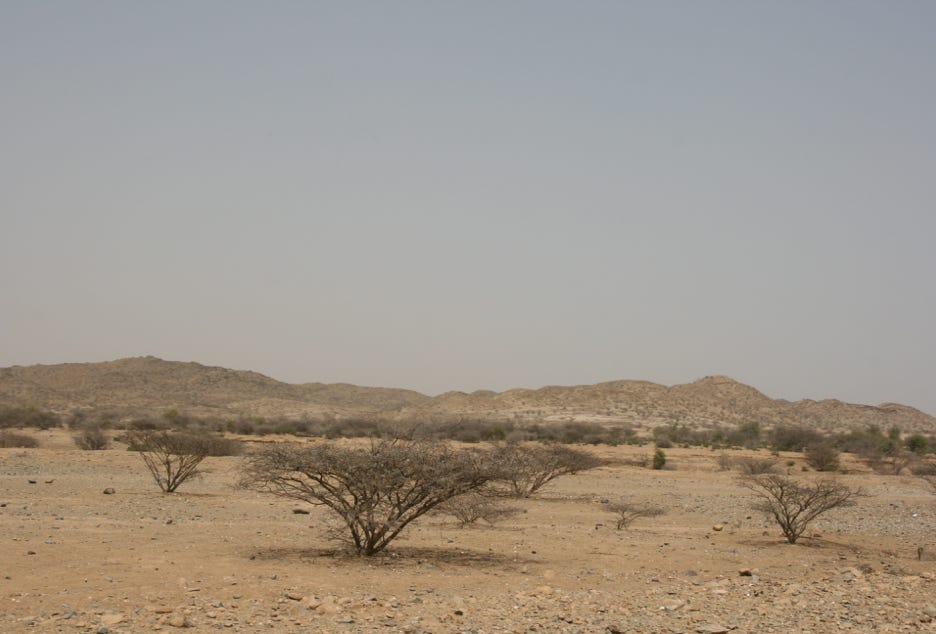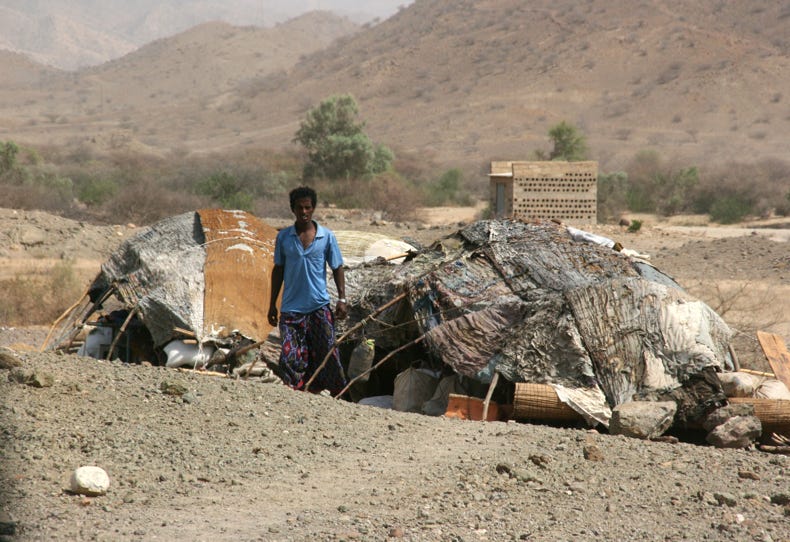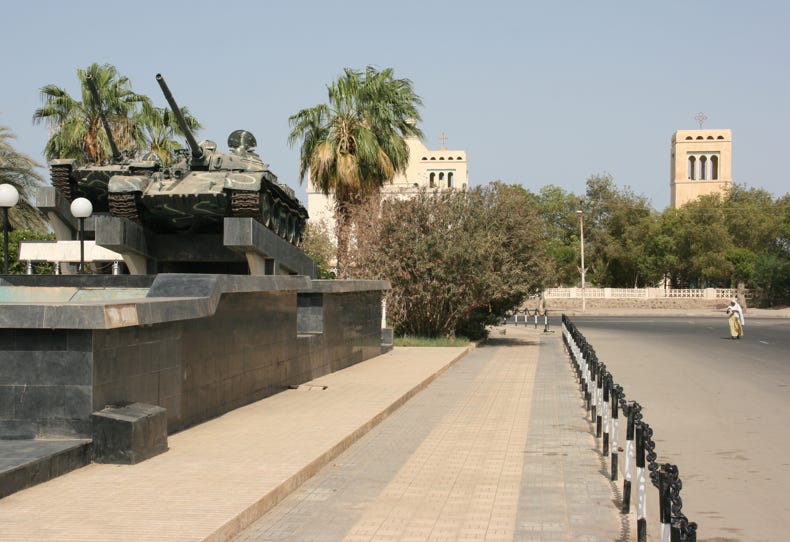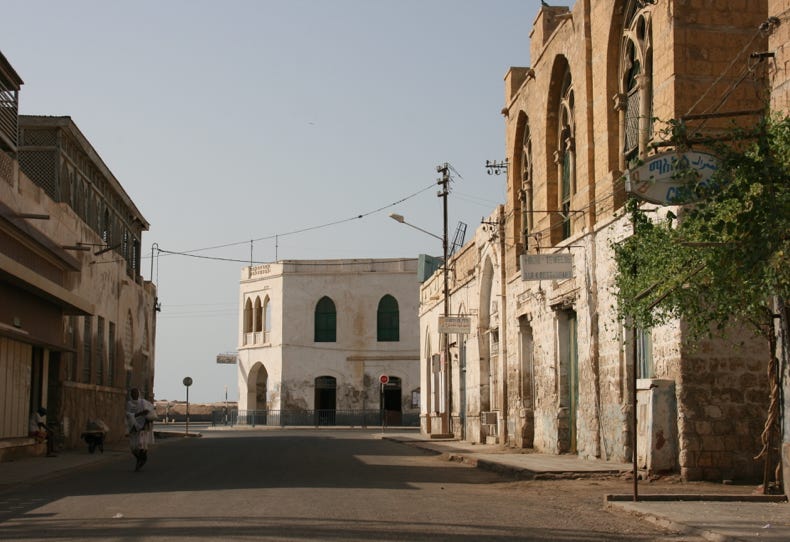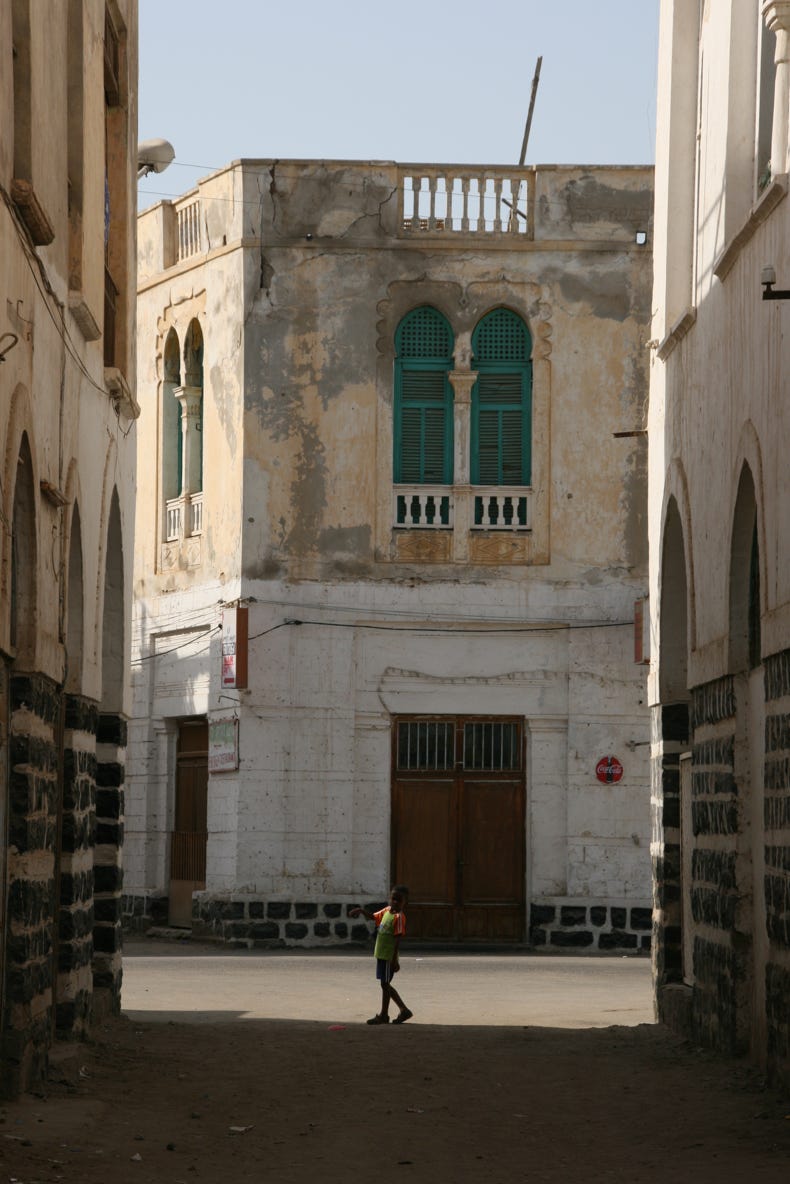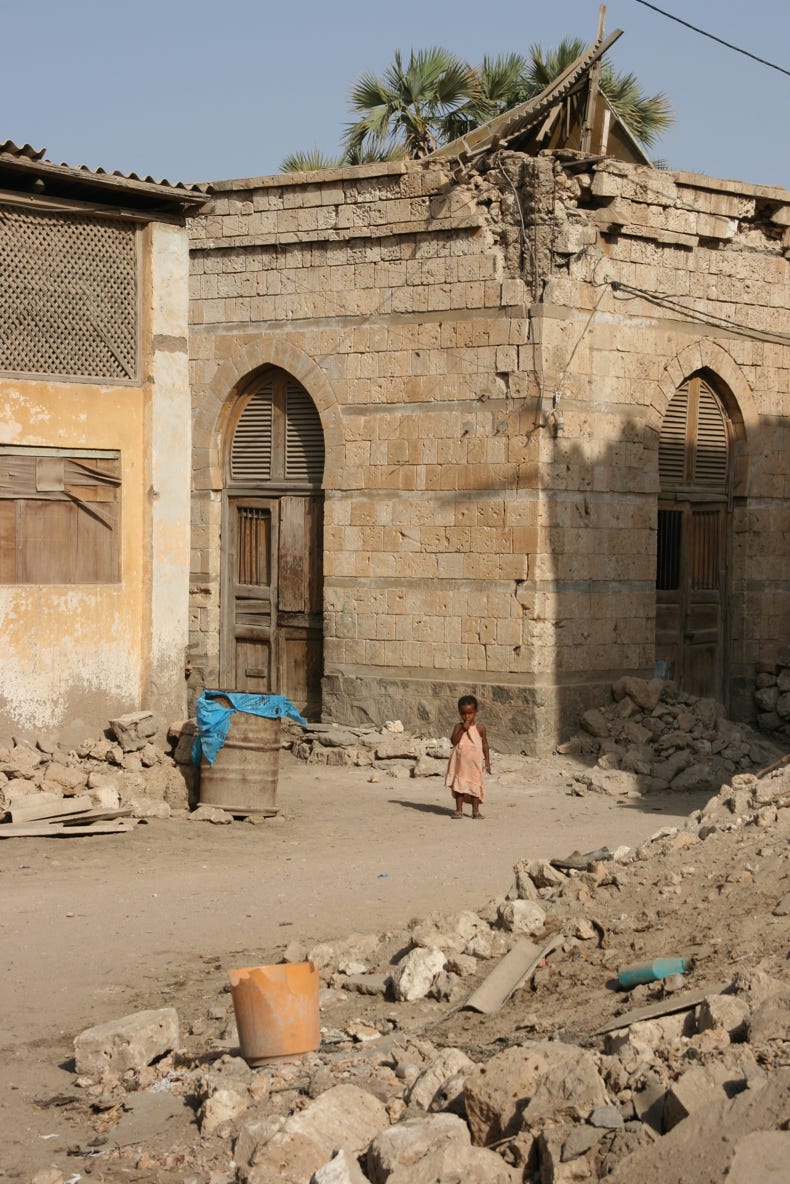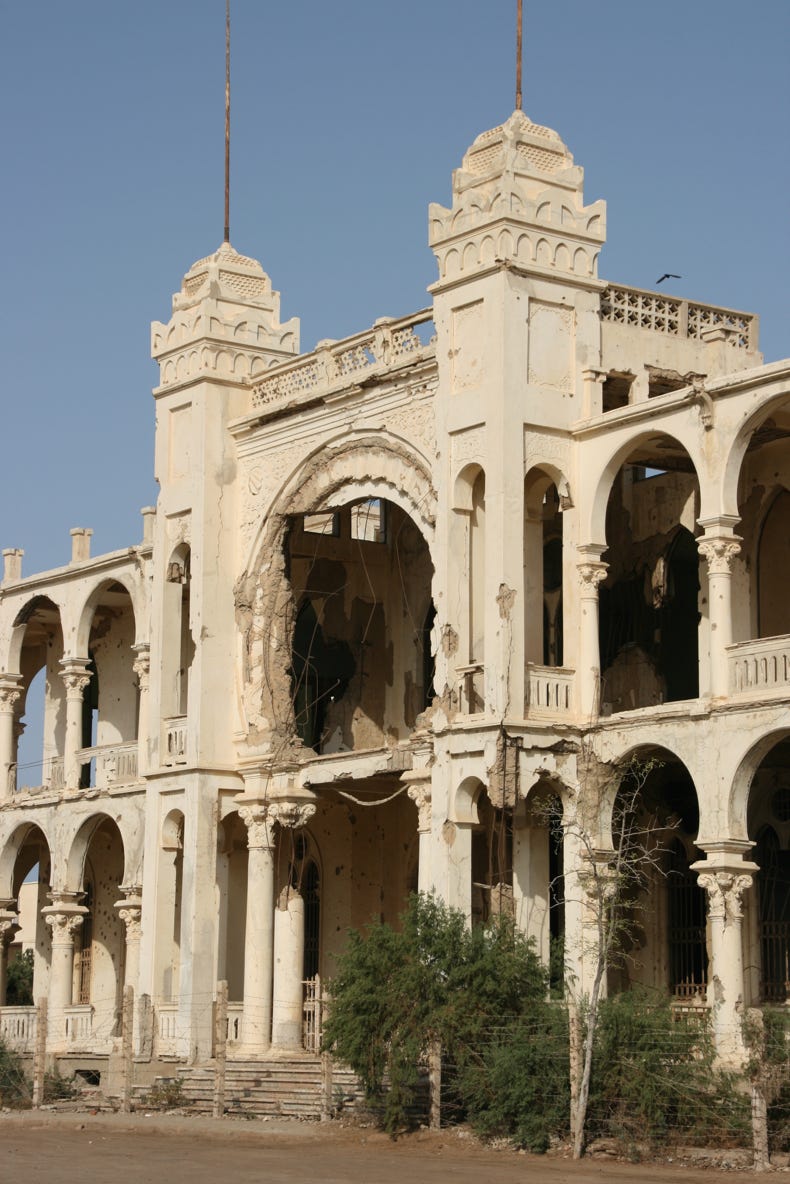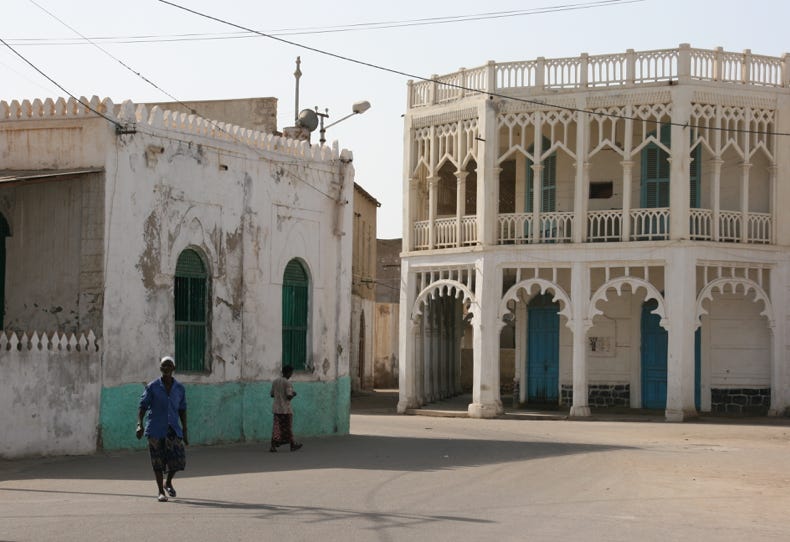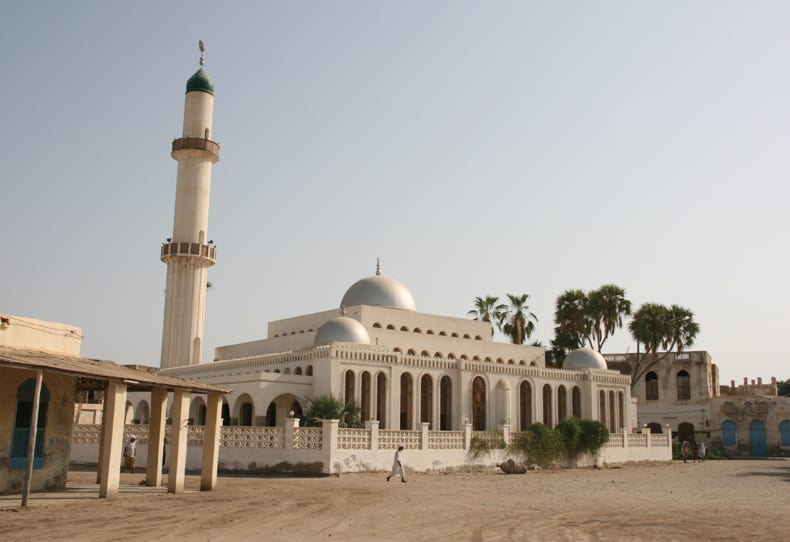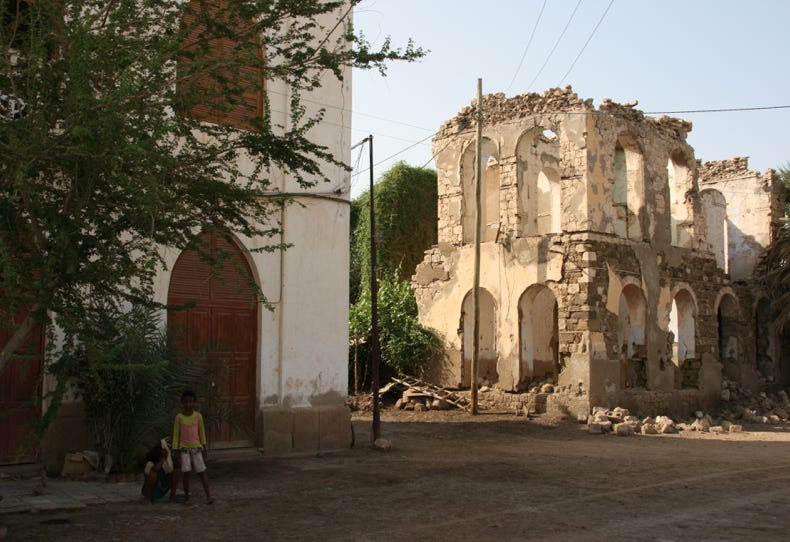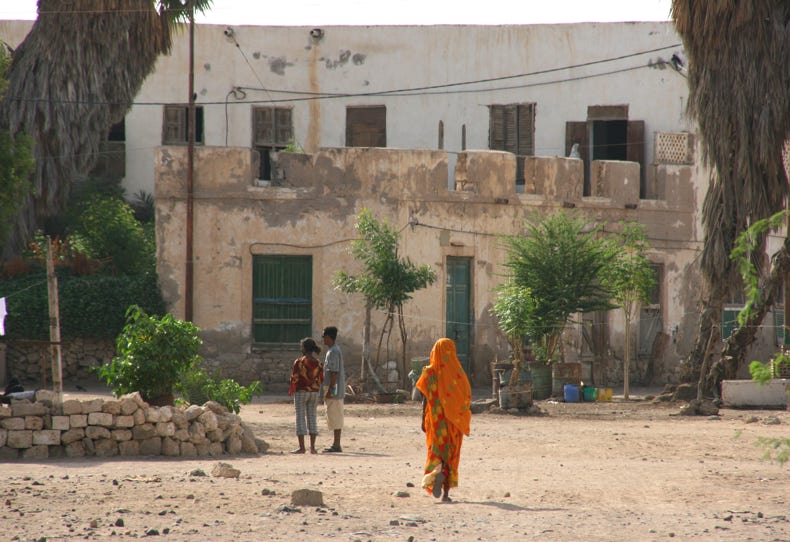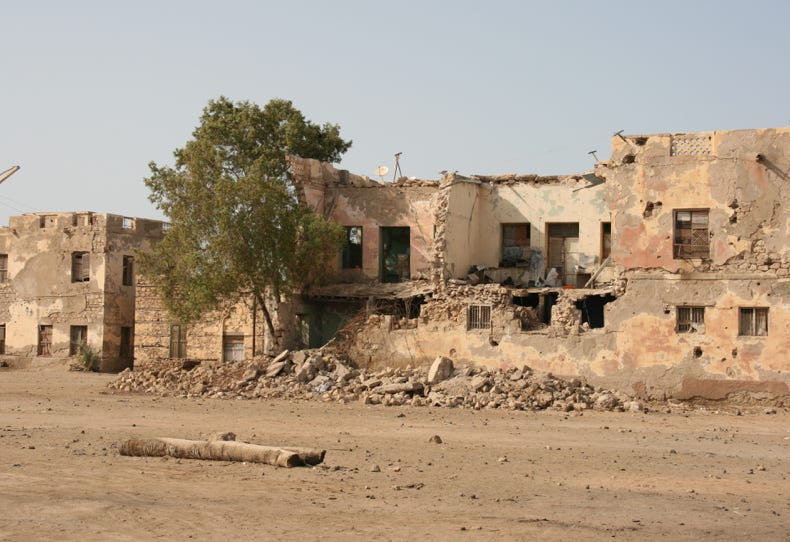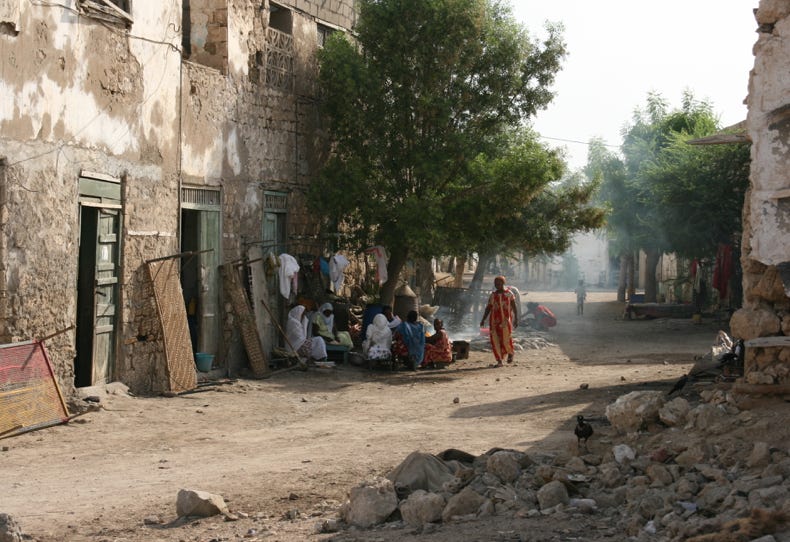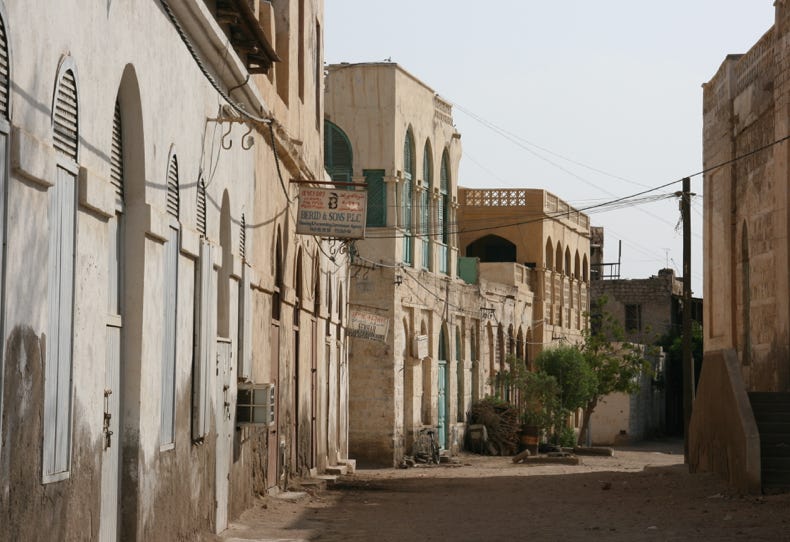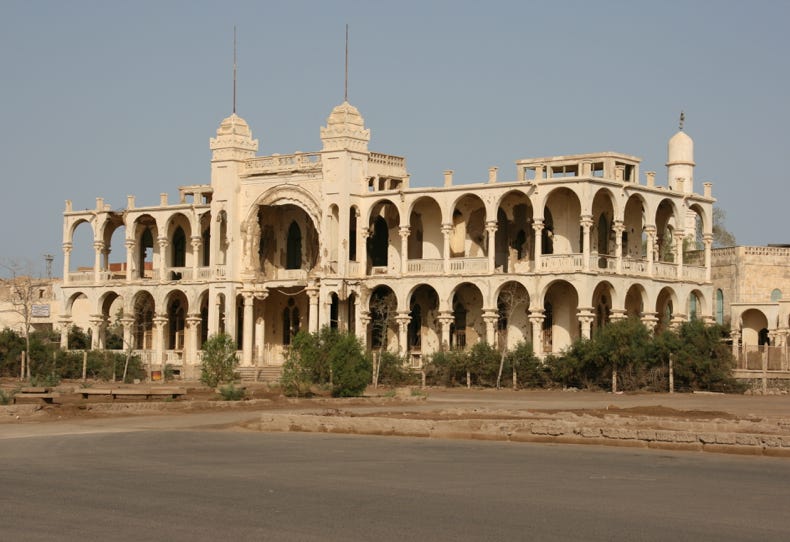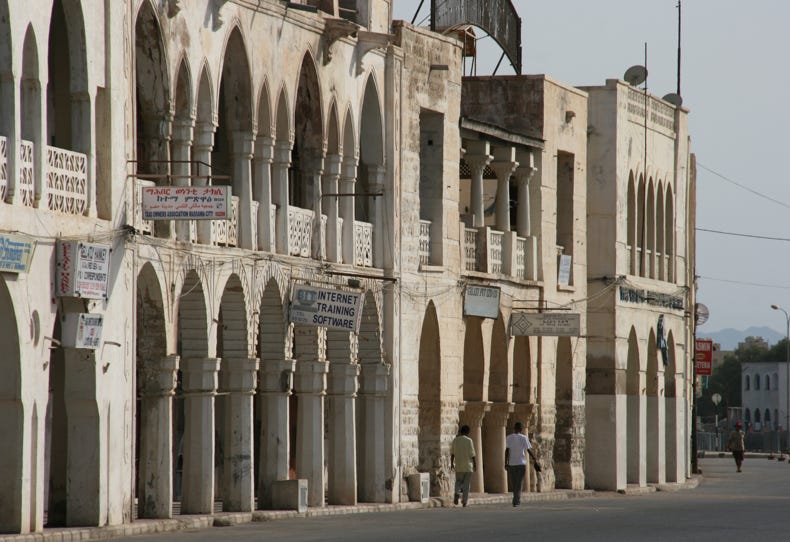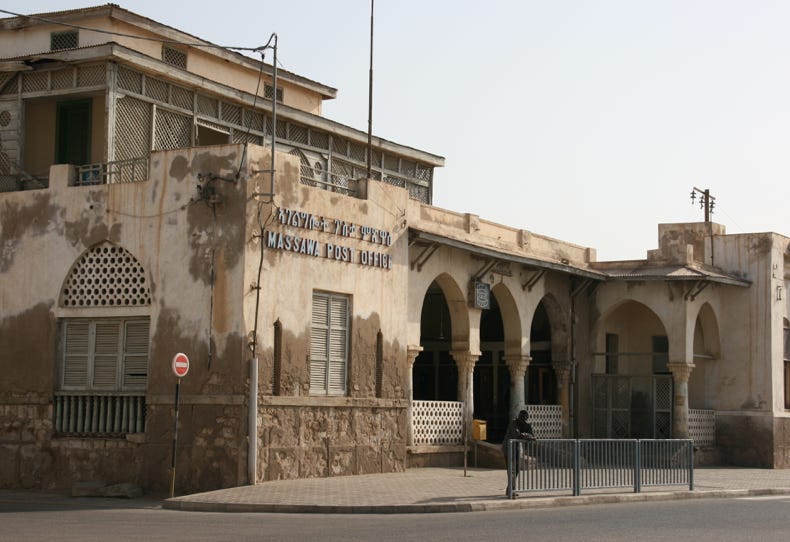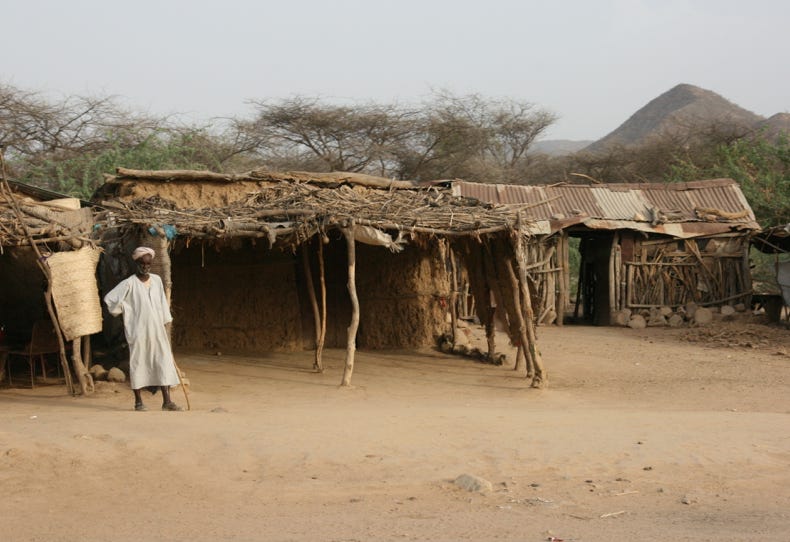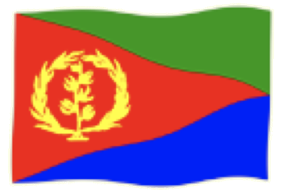

After the late night last night, it was good to have a sleep in until the alarm sounded at 7:15 am. Andrew and I both had enjoyable showers – we have come to appreciate it when we arrive at a hotel that has enough hot water for two people to have showers in the morning. No blackouts, reliable running water, including hot water – these are the signs of an above average hotel! We had a buffet breakfast in the hotel restaurant, which had the nice touch, I thought, of doubling as a wildlife refuge – even though flies were the only type of wildlife present, they were there in huge abundance, crawling over the food, the plates and the utensils. We really do feel close to nature in such situations :-)
Our aim today was to explore Asmara, and for this purpose we had arranged for a driver and his little yellow taxi to take us around. My initial impressions of Asmara were that it was a kind of African version of Adelaide – clean, orderly, slow (in fact, very slow), wide streets, well laid-out, and low-rise. Many of the buildings had been constructed by the Italian Fascists during the 1930s and 1940s, often in art-deco style, and although sometimes crumbling and lacking maintenance, they combined to make a very elegant city.
Before starting to explore Asmara, we had one important stop to make, which was the Eritrea Airlines office. I had booked tickets by e-mail several months ago for our flight from Asmara to Dijbouti on 2nd July, but I had to pay and collect the tickets after arrival in Asmara. So you can imagine that we somewhat dismayed to be told a little dismissively that the flight had been cancelled. Apparently Eritrea and Djibouti are having some kind of conflict which, I was told, has not yet erupted into war, but has resulted in all contact between the two countries being suspended.
That discovery initiated a search for a replacement way out of Eritrea, which was not an easy task. Neither Eritrea nor Djibouti has very many international flights in or out. Egypt Air had a flight to Cairo on Wednesday 2nd July, but there were no flights from Cairo to Djibouti. Yemenia had a flight to Sana’a on Tuesday 1st July, but its connecting flight to Djibouti was on Friday 4th July, arriving after our flight back to Hong Kong (via Addis Ababa) was due to have already departed. Land access between Eritrea and Djibouti was impossible in the current situation, and the only other option to leave Eritrea was tomorrow morning on the Eritrea Airlines weekly flight to Dubai.
Having found a way out of Eritrea, we started to explore flights between Dubai and Djibouti. As it turned out, there are four weekly flights between Dubai and Djibouti, all on vintage Boeing 727s operated by Djibouti’s Daallo Airlines. The flights on Monday 30th June and Tuesday 1st July were already full, but we managed to get the last two seats (we hope) for the flight on Thursday 3rd July. I say “we hope” because although the reservation has been made, the tickets can only be confirmed after they have been paid for, and this must be done in Dubai.
Thus, we spent the whole morning finding a way out of Eritrea, and the only solution that was possible for us has meant that, unfortunately, most of our Eritrean plans have had to be cancelled.
However, all was not lost. Haile, our taxi driver, offered us the choice of spending the afternoon exploring Asmara (as planned) or taking a round-trip of about 250 kilometres for Massawa, a town of 40,000 people on the Red Sea coast to the north-east of Asmara. As our original plans had involved a full-day trip to Massawa, which was described in the guidebooks as one of Eritrea’s ‘must-see’ locations, we accepted the offer of the long drive – certainly a long drive for a little yellow Kia taxi that usually plies the streets of Asmara.
The choice was a good one, as it enabled us to see something of Eritrea’s countryside. The drive from Asmara to Massawa involved a descent from about 2500 metres to sea level, necessitating extremely winding roads both going down and on the return trip up to Asmara.
For the trip to Massawa, we took a newly built road via Filfil, which provided dazzling views of the remarkable escarpment and the road that twisted back and forth to make the descent. At one stage, we came across a rusting Soviet tank that had been used by Ethiopian troops to defend a mountain pass during the war that resulted in Eritrea’s separation from Ethiopia.
As we made the descent, the air became noticeably hotter, and by the time we were 60 kilometres from Massawa, the temperature was in the mid-40s, with the hot drying air being almost painful to have blowing on our faces. However, as the car had no air conditioning, the alternative of driving with windows up would have been unthinkable. We were certainly pleased when we emerged from the parched desert scenery and entered Massawa, with a slight sea breeze from the deep blue waters of the Red Sea providing welcome relief - as did the three bottles of mineral water that we consumed as soon as we arrived.
Our main aim in going to Massawa was to explore the old town, which was described in my reading as a gem of a place, reminiscent of the old stone town of Zanzibar. To be fair, I thought Massawa was well short of being another Zanzibar, but it did have great character, and the combination of whitewashed portico buildings and narrow alleyways was without doubt worth the long, hot drive to get there. Sadly, it was very clear that Massawa had suffered extensive damage during the most recent war (in the late 1990s), and many of the buildings were just shot-up empty or half-destroyed shadows of their former selves.
The return drive to Asmara took a different, slightly more direct route that passed thorough many more towns than the route we had used to get to Massawa. We arrived in Asmara just before 7:30 pm, all in good time to enjoy an extremely unglamorous but edible (in small quantities) buffet dinner at our hotel.
After dinner, I spent a couple of hours in the hotel foyer where a glacially slow (but free) wireless internet connection made it possible to try and find some accommodation in Dubai – which I needed for the following night. It was an extremely frustrating exercise, because many websites timed out with the slow connection, and others refused to accept a booking because they ‘thought’ that it was already 29th June (which it probably was where the sites were being hosted) and that therefore it was too late to make a booking for that date. After almost two hours, I finally managed to secure a booking, so at least we can fly tomorrow in the knowledge that a room will be waiting for us when we arrive.
My next task is to devise an appropriate educationally-oriented fieldwork program for Andrew so that his time in Dubai is not wasted by relaxing.
